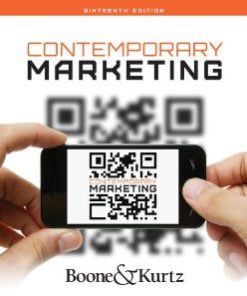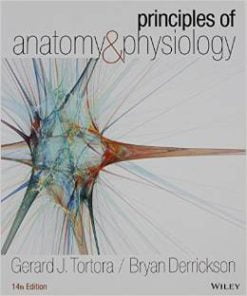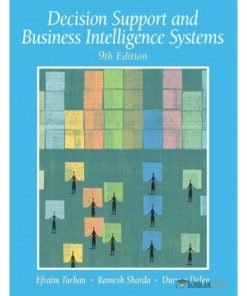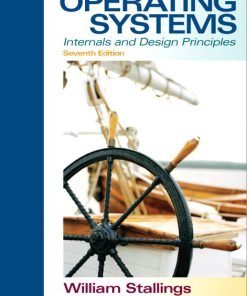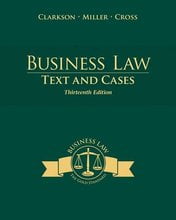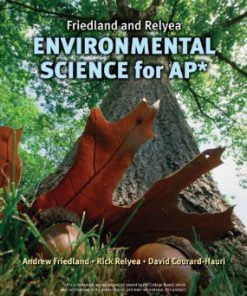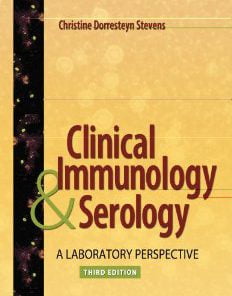Test Bank for Kaleidoskop, 8th Edition
$35.00 Original price was: $35.00.$26.50Current price is: $26.50.
Test Bank for Kaleidoskop, 8th Edition
Instant download Test Bank for Kaleidoskop, 8th Edition pdf docx epub after payment.
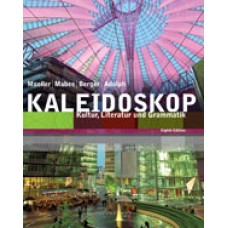
Product details:
- ISBN-10 : 1111344205
- ISBN-13 : 978-1111344207
- Author: Jack Moeller; Winnie Adolph
KALEIDOSKOP features a flexible four-skills, learner-centered approach that promotes communication and focuses on the literature and culture of the German-speaking world. KALEIDOSKOP is essentially two books in one–a cultural and literary reader (Lektuere with ten Themen) with a comprehensive review of grammar (Kapitel). This combination allows maximum flexibility for instructors to design their own programs. Presented in a brand-new four color design, the text features a fully integrated short film (Kurzfilm) in every other chapter. Reading plays an important role in this text, with exercises for listening, speaking and writing revolving around the wide range of authentic reading selections including: advertisements, charts, newspaper and magazine articles, letters, e-mails, forum mails, polls, interviews, biographies, songs, poems, and fiction. The self-contained grammar section (Grammatik) allows instructors to work with the grammar topics in whatever order they choose; the grammar chapters may be treated independently of the reading chapters or used concurrently with the Themen of the same number. With these materials the instructor can provide a learner-centered classroom with activities that lend themselves to cooperative learning.
Table Of Contents:
PART I. Erster Teil. Lektüre. THEMA
1. Freizeit. Kulturlesestücke. Tabelle: Was machen Sie üblicherweise in Ihrer Freizeit?. Online-Interview: Wie verbringst du deine Freizeit?. Reiseführer: München. Literarische Werke. Gedicht: Vergnügungen, Bertolt Brecht. Kurzgeschichte: Mittagspause, Wolf Wondratschek. THEMA
2. Kommunikation. Kulturlesestücke. Online-Zeitungsartikel: Sabrina Gundert: Kann man ohne Handy leben?. Magazin-Essay: Katrin Dorn: Als man SMS noch auf Papier notierte. Reiseführer: Hamburg. Kurzfilm: Das Puzzle. Literarische Werke. Gedicht: Sachliche Romanze, Erich Kästner. Kurzgeschichte: Eine Postkarte für Herrn Altenkirch, Barbara Honigmann. THEMA
3. Deutschland im
21. Jahrhundert. Kulturlesestücke. Interview: Was das Wort ,,DDR” fur mich bedeutet. Zeitschriftenartikel: Kontinent im Kleinformat: Die Europäische Schule in München. Reiseführer: Dresden. Literarische Werke. Gedicht: Nach dem Umsturz, Heinz Czechowski. Drehbuch: Good-Bye Lenin! Bernd Lichtenberg; CoAutor Wolfgang Becker. THEMA
4. Familie. Kulturlesestücke. Interview: Einstellungen zur Familie. Kolumne: Michael Kneissler: Ich muß für meinen Sohn nachsitzen. Reiseführer: Bremen. Kurzfilm: Familienrevier. Literarische Werke. Gedicht: Dich, Erich Fried. Märchen: Die sieben Raben Jakob und Wilhelm Grimm. THEMA
5. Musik. Kulturlesestücke. Übersicht: Die Stars livehaftig erleben. Biografie: Clara Schumann. Song: die da!?!. Anzeigen: Veranstaltungen. Reiseführer: Wien. Literarische Werke. Song: Dieser Weg. Xavier Naidoo. Gedicht/Lied: Der Erlkönig, Johann Wolfgang von Goethe (Musik von Franz Schubert). THEMA
6. Die Welt der Arbeit. Kulturlesestücke. Tabelle: Produkt gut – alles gut. Artikel: „Einmal im Ausland arbeiten”. Ãœbersicht: Das Schulsystem in Deutschland. Reiseführer: Frankfurt am Main. Kurzfilm: Dufte. Literarische Werke. Gedicht; Arbeits-Los, Johann Sziklai. Tagebuchaufzeichnung: Dienstag, der
27. September 1960, Christa Wolf. THEMA
7. Multikulturelle Gesellschaft. Kulturlesestücke. Interviews: Max Scharnigg, Friederike Knüpling: Pinar Erincin, Schauspielerin. Ursula Kiausch: ,,Integration statt Assimilation”. Reiseführer: Berlin. Literarische Werke. Gedicht: Ich habe zwei Heimatländer Sabri Cakir. Erzählung: Geschäftstarnungen, Wladimir Kaminer. THEMA
8. Junge Erwachsene. Kulturlesestücke. Schaubilder: Werte und Befürchtungen der Jugendlichen. Artikel: Schule & Job ,,was werden”. Artikel: Eine Frage der Existenz. Reiseführer: Zürich. Kurzfilm: tbd. Literarische Werke. Gedicht: Ein Jüngling liebt ein Mädchen, Heinrich Heine. Kurzgeschichte: Brief aus Amerika, Johannes Bobrowski. THEMA
9. Stereotypen. Kulturlesestücke. Umfrage: Die Deutschen über sich selbst. Feature: Randy Kaufman: „Unser Ausland!”. Skizze: Zeidenitz; Barkow: „Small talk. Berichte: Tübinger Austauschstudenten berichten Reiseführer: Köln. Literarische Werke. Gedicht: Anders II, Rose Ausländer. Kurzgeschichte: Die grüne Krawatte, Arthur Schnitzler. THEMA
10. Umwelt. Kulturlesestücke. Zeitschriftenartikel: Die Kunst der Mülltrennung. Zeitschriftenartikel: Ganz neue Töne. Umfrage: „Umweltschutz geht jeden an”. Reiseführer: Freiburg Kurzfilm: tbd. Literarische Werke. Gedicht: Ruß Sarah Kirsch. Kurzgeschichte: Der Bergarbeiter, Heinrich Böll. PART II. Zweiter Teil. Grammatik.
1. Infinitive stems and endings. Basic present-tense endings. Present tense of stem-changing verbs. Haben, sein, werden, and wissen in the present tense. Uses of the present tense. Imperative forms. Separable-prefix verbs. Present tense of modal auxiliaries. Use of modal auxiliaries. Meaning of the modal auxiliaries. The möchte -forms. Negative of müssen and dürfen. Wollen, dass and möchten, dass. Meanings of lassen. Future time: present tense. Future time: future tense. Future tense of modals. Other uses of the future tense.
2. Simple past tense. Weak verbs in the simple past. Modals in the simple past. Irregular weak verbs. Strong verbs in the simple past. Sein and werden in the simple past tense. The present perfect tense. Past participles of regular weak verbs. Past participles of irregular weak verbs + haben. Past participles of strong verbs. Past participles of separable-prefix verbs. Past participle without ge- prefix. Use of the auxiliary haben. Use of the auxiliary sein. The present perfect versus simple past. The past perfect tense. infinitives without zu. Double infinitive construction with modals, hören, sehen, lassen.
3. Position of the finite verb in statements. Position of the finite verb in questions. Word order: time, manner, place. Position of nicht. Independent clauses and coordinating conjunctions. Two-part conjunctions. The conjunctions aber and sondern. Dependent clauses and subordinating conjunctions. Uses of als, wenn, and wann. Dependent clauses: indirect statements and questions. Infinitives with zu. Expressions um … zu, (an)statt … zu, ohne … zu.
4. Uses of the nominative case. Uses of the accusative case. Direct object. Definite article, nominative and accusative. Der-words, nominative and accusative. Meanings and uses of der-words. The indefinite article ein and kein, nominative and accusative. Possessive adjectives. Nouns indicating nationalities and professions. Masculine N-nouns in the accusative case. Personal pronouns, nominative and accusative. Demonstrative pronouns, nominative and accusative. The indefinite pronoun man. The interrogative pronouns wer and was. Prepositions. Prepositions with the accusative case. Time expressions with the accusative case. Accusative of measure. Units of measurement and quantity. The expression es gibt.
5. Forms of the dative case. Nouns in the dative plural. Masculine N-nouns in the dative case. Personal pronouns in the dative case. Demonstrative pronouns in the dative case. The interrogative pronoun wer in the dative. Uses of the dative case. Indirect object. Word order of direct and indirect objects. Dative verbs. Prepositions with the dative case. Contractions of dative prepositions. Adjectives with the dative case.
6. Hin and her. Two-way prepositions. Contractions of tw-way prepositions. The verbs legen/liegen, setzen/sitzen, stellen/stehen, hängen, stecken. Verb and preposition combinations. Time expressions with the dative case. Da-compounds. Wo-compounds. Forms of the genitive case. Nouns in the genitive. Masculine N-nouns in the genitive. Proper names in the genitive. The interrogative pronoun- wessen. Uses of the genitive case. Possession and other close relationships. Prepositions with the genitive case. Expressions of indefinite time. Special expressions. Dative as substitute for the genitive.
7. Predicate adjectives. Attributive adjectives. Adjectives preceded by the definite article or der-words. Adjectives preceded by the indefinite article or ein-words. Ommision of the noun. Summary of preceded adjectives. Unpreceded adjectives. Adjectives following indefinite adjectives. Adjectives used as nouns. The adjective hoch and adjectives ending in -el or -er. Ordinal numbers. Present participles as adjectives. Past participles as adjectives. Comparison of adjectives and adverbs. Expressing comparisons.
8. Indicative and subjunctive. Subjunctive II. Verb endings in present-time subjunctive II. The wurde-construction. Present -time subjunctive II of sein and haben. Modals in present-time subjunctive II. present-time subjunctive II of strong verbs. Present-time subjunctive II of regular weak verbs. Past-time subjunctive II. Modals in past-time subjunctive II. Conditional sentences. Omission of wenn in conditional sentences. Uses of the wurde-construction and subjunctive II. Clauses introduced by als ob and als wenn. The würde-construction versus the subjunctive II of the main verb.
9. Reflexive pronouns. Accusative reflexive pronouns. Dative reflexive pronouns. Verbs with either accusative or dative reflexive pronouns. Reflexive verbs and verbs used reflexively. Reflexive with parts of body and clothing. Intensifiers selbst and selber. Reciprocal use of reflexives and einander. Relative clauses. Forms of relative pronouns. The relative pronouns was. The relative pronouns wer and was with no antecedent. Extended modifiers. Objective and subjective use of modals. Subjective statements in present time. Subjective statements in past time. objective and subjective meanings of modals.
10. The passive voice. Tenses in the passive voice. Expressing agent and means. Modals and the passive infinitive. Impersonal passive construction. Dative verbs in the passive voice. Past participle in passive vs. past participle as predicate adjective. Summary of uses of werden. Alternatives to the passive voice. Indirect discourse: Statements. Subjunctive II. Subjucntive I. Present-time subjunctive I. Subjunctive I of sein. Past-time subjunctive I. Future-time subjunctive I. Subjunctive I in wishes, commands, and requests. Indirect discourse: Tenses. Indirect yes-no questions. Indirect informational questions. Indirect commands. Summary: Indirect discourse.
People also search:
Kaleidoskop, 8th Edition
Kaleidoskop, 8th Edition pdf
Kaleidoskop
kaleidoscope springfield about
why was kaleidoscope discontinued
Related products
Test Bank
Test Bank for Decision Support and Business Intelligence Systems, 9th Edition: Efraim Turban
Test Bank
Test Bank for Operating Systems: Internals and Design Principles, 7th Edition: William Stallings
Test Bank
Test Bank for Clinical Immunology and Serology A Laboratory Perspective, 3rd Edition: Stevens




